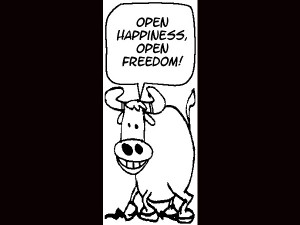Coke adds fizz to Burma buzz

For the first time in 60 years, Coca-Cola Co. plans to “open happiness” and start selling its drinks in Burma (Myanmar), following the US government’s decision to suspend investment sanctions on the country for its democratic reforms.
Burma is one of three countries where the world’s largest beverage company doesn’t do business. The other two are Cuba and North Korea.
The world’s biggest softdrink maker said on Thursday Burma would start enjoying its sparkling and still brands as soon as the US government issues a license allowing American companies to make such investments.
The United States announced last month that it was suspending restrictions on American investments in the Southeast Asian country, which is still easing toward democracy. Until last year, Burma had been led by an oppressive military junta.
Coca-Cola said its products would initially be imported from neighboring countries as it establishes local operations in Burma.
Iconic fizzy drink
Burma has not had a taste of the iconic American fizzy drink for six decades. The military seized control of the country in 1962.
The junta ceded power to a nominal civilian, President Thein Sein, last year. Despite initial cynicism about him, Thein Sein has undertaken reforms including freeing political prisoners, opening dialogue with ethnic minorities and launching talks with democracy icon Aung San Suu Kyi, who was elected to parliament after years under house arrest.
US President Barack Obama’s administration has also announced a loosening of restrictions on financial services to Burma, allowing credit cards to return.
But the United States, unlike several other countries, has not removed restrictions on imports from Burma, arguing that gems, timber and other goods provide a lucrative business for antireform elements in the army.
“Coca-Cola Co. has always stood for optimism at times of change and progress around the world,” chair and chief executive officer Muhtar Kent said in a statement.
Coca-Cola said that it would abide by ethical standards, including respecting human rights and not paying bribes.
Market leader
The company notes that it has a history of being among the first to enter or reenter markets.
In 1949, for instance, Coca-Cola and other foreign companies were expelled from China by the communist government. After full diplomatic relations were established with the country in 1979, Coca-Cola had 20,000 cases of its flagship drink delivered by train into the country from Hong Kong, which was still a British territory at the time.
The Atlanta-based company also noted that Cuba was one of the first countries where it did business, opening operations in the nation in 1906. But after the Cuban revolution, Fidel Castro’s government began seizing private assets and the company liquidated and exited the country in 1960. The company has never operated in North Korea.
Coca-Cola products in those countries are obtained through independent third parties.
As part of its push in Burma, Coca-Cola said it was donating $3 million to support job creation for women in the country. The company will work with PACT, a nongovernmental group that supports economic and health initiatives in developing nations.
It said it expected to make “significant investments” in Burma over the next three to five years.
Coca-Cola first entered Burma in 1927.